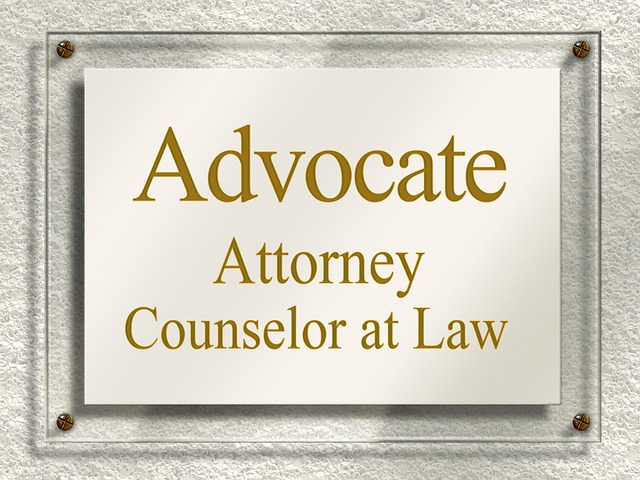Following an elderly sexual assault in Cleveland, immediate actions include seeking medical attention, documenting evidence, filing a police report, and consulting a lawyer specialized in elder abuse cases. Legal guidance ensures privacy, understands state laws, facilitates communication, offers flexible payment options, and prepares for case outcomes. Preventative measures involve enhancing home security, encouraging open communication, connecting with local organizations, collaborating with professionals, advocating for stricter regulations, and sharing stories. A lawyer remains engaged throughout to protect rights and build a strong case.
In a society where elder abuse remains an unspoken yet prevalent issue, the aftermath of elderly sexual assault demands immediate and specialized attention. This critical article guides Cleveland families navigating the complex steps following such traumatic events. Understanding the legal implications and available resources is paramount in seeking justice and healing. A qualified lawyer specializing in elder rights can offer invaluable support, ensuring that victims’ rights are protected and providing a roadmap to recovery. By demystifying this process, we empower families to take proactive measures, foster awareness, and promote a culture of safety for our aging population.
Understand the Legal Rights and Options: Consult a Lawyer

Following an elderly sexual assault, Cleveland families must swiftly navigate complex legal territory to protect their rights and seek justice. Understanding one’s legal options is crucial, and consulting a lawyer specialized in elder abuse cases is a critical first step. These attorneys are trained to handle sensitive matters with discretion and expertise, ensuring victims’ privacy and safety during the legal process.
A lawyer can provide invaluable guidance tailored to each family’s unique circumstances. They will help decipher state laws and local regulations pertaining to elderly sexual assault, which may vary significantly. For instance, in Ohio, there are specific statutes that address elder abuse, offering clear guidelines on criminal charges and civil litigation. A legal professional will ensure these are correctly applied to the case at hand, enabling families to make informed decisions. Moreover, they can facilitate communication with law enforcement, medical professionals, and social services, ensuring a comprehensive approach to the investigation and any subsequent legal action.
Practical considerations also come into play when engaging a lawyer. Families should look for attorneys who have experience handling elder abuse cases, possess deep knowledge of local resources, and offer flexible payment options. Many lawyers understand the financial strain such situations can cause and are willing to work pro bono or on a contingency basis, ensuring accessibility to legal aid without undue hardship. Early consultation allows for better preparation, potentially influencing the case’s outcome and providing closure and peace of mind for the family.
Prioritize Emotional Support and Safety Measures

When a family faces the devastating reality of an elderly relative’s sexual assault, prioritizing emotional support and safety measures is paramount. The initial shock and trauma can be overwhelming, but it’s crucial to establish a secure environment for healing. This involves enlisting professional counselors who specialize in trauma support, providing a safe space for open communication, and ensuring the victim feels heard and respected. Regular check-ins with healthcare professionals are essential to monitor both physical and mental well-being.
Safety measures extend beyond the immediate aftermath. It’s advisable to consult with a lawyer experienced in handling elder abuse cases to understand legal options and rights. This can include pressing charges against the perpetrator, seeking compensation for medical expenses and emotional distress, and implementing safeguards to prevent future incidents. Installing security systems, establishing power of attorney, and designating trusted individuals as emergency contacts are practical steps that can enhance safety.
Support groups tailored for both victims and families can offer invaluable companionship and advice. Sharing experiences with others who’ve faced similar challenges fosters a sense of community and understanding. Additionally, educating oneself about elder abuse prevention strategies empowers families to be proactive in safeguarding their loved ones. Remember, healing is a journey, and by prioritizing emotional support and safety measures, Cleveland families can navigate this difficult period with resilience and strength.
Document Evidence and Seek Medical Attention

After an elderly individual experiences sexual assault, it’s crucial for their family to take immediate action. Documenting evidence and seeking medical attention are two critical steps that can significantly impact the case’s outcome. Families should begin by ensuring the safety and comfort of the victim, then document any visible injuries or unusual behavior immediately after the incident. This includes taking photographs of wounds or bruises and recording detailed accounts of what happened from witnesses, if available.
Next, it is imperative to consult with a medical professional who can provide a thorough examination and collect evidence such as bodily fluids or hair samples that may be used in a legal case. A healthcare provider can also offer vital emotional support and refer the victim to counseling services. In Cleveland, victims can reach out to local hospitals or specialized sexual assault clinics for assistance. Engaging with law enforcement at this stage is optional but advisable, as they can guide families through the legal process and help collect additional evidence.
Hiring a lawyer specializing in elderly rights and criminal cases is another essential step. A legal professional can advise on the best course of action, ensuring that all evidence is properly handled and presented. They will guide families through the complexities of the justice system and advocate for their relative’s rights. With proper documentation and medical records, a lawyer can build a strong case, potentially leading to the arrest and prosecution of the assailant. This process requires sensitivity and expertise, making it crucial to choose a lawyer with experience in handling such cases.
Report to Authorities: Navigating Legal Procedures

When a Cleveland family faces the devastating realization of an elderly relative’s sexual assault, immediate action is crucial. Reporting to authorities not only initiates the legal process but also ensures the perpetrator faces consequences. The first step involves contacting the local police department to file a formal report. This act triggers an official investigation and can lead to potential charges against the assailant. It’s important to provide as much detail as possible during this initial interaction, including dates, locations, and descriptions of the incident.
Legal procedures following a sexual assault on an elderly individual can be intricate. Families should expect a thorough review of evidence, witness interviews, and potentially medical examinations. A lawyer specializing in such cases can offer invaluable guidance throughout this process. They will ensure the rights of the victim and their family are protected while navigating the legal system. For instance, a lawyer may advise on the collection and preservation of evidence, ensuring its admissibility in court. Understanding the legal landscape is essential to avoid potential pitfalls that could hinder the case.
The role of a lawyer extends beyond legal representation. They can also facilitate communication with medical professionals, social services, and support groups tailored to elderly victims. This comprehensive approach ensures the family receives holistic support during an otherwise traumatic experience. Data suggests that timely reporting and professional legal assistance significantly improve outcomes for elderly assault victims, emphasizing the vital importance of this step in the aftermath of such incidents.
Long-term Care and Prevention Strategies for Families

After an elderly family member experiences sexual assault, long-term care and prevention become paramount. This involves both immediate support and strategic planning to ensure their safety and well-being in the future. Families should begin by seeking medical attention for the victim, documenting all interactions with authorities and healthcare providers, and consulting with a lawyer specializing in elder abuse cases. This initial step is crucial for building a solid legal case against the perpetrator while also safeguarding any potential evidence.
Looking ahead, families can implement several preventative strategies. First, consider enhancing home security measures, such as installing better locks, adding alarm systems, or even considering a surveillance setup tailored to the victim’s needs. Additionally, encourage open communication about personal boundaries and safety. This includes educating family members on recognizing potential red flags, understanding consent, and knowing how to respond if they or a loved one encounters an uncomfortable situation. Regularly reviewing and updating these protocols is essential, as awareness can significantly deter future incidents.
A robust support network is another vital component. Families should connect with local organizations specializing in elder abuse prevention and victim assistance. These groups often offer counseling services, support groups, and educational resources tailored to the unique challenges faced by elderly individuals and their families. Collaborating with professionals, like therapists or social workers, can also help victims process trauma and rebuild trust. Engaging with a lawyer throughout this process ensures that legal options remain open and provides an additional layer of protection.
Lastly, advocating for systemic change is crucial. Families can push for stricter regulations and increased penalties for sexual assault against the elderly, potentially impacting future perpetrators. By sharing their story (with consent) and engaging with local representatives, they contribute to a broader dialogue about elder abuse prevention, fostering a safer environment for vulnerable individuals within the community.
Related Resources
Here are some authoritative resources for an article on steps Cleveland families can take after elderly sexual assault occurs:
1. National Sexual Assault Hotline (Government Resource): [Offers immediate support and information for victims of sexual assault, including guidance for family members.] – https://www.rainn.org/
2. Cleveland Clinic (Medical Center Website): [Provides healthcare expertise and patient resources related to elder care and trauma.] – https://my.clevelandclinic.org/health/topics/17409-elder-abuse
3. Ohio Department of Health (Government Portal): [Offers state-specific resources on elder abuse prevention, detection, and reporting.] – https://www.odh.ohio.gov/wps/portal/gov/odeh/home
4. National Institute on Aging (NIA) (Federal Government Agency): [Offers aging-related research and information, including resources on recognizing and preventing elder abuse.] – https://www.nia.nih.gov/health/elder-abuse
5. Cleveland Police Department (Local Law Enforcement Website): [Provides information about local resources for victims of sexual assault and reporting procedures.] – https://www.clevelandohio.org/police/
6. Elder Law Center of Northeast Ohio (Legal Aid Organization): [Offers free legal assistance and advice regarding elder rights and protection.] – https://www.neolawcenter.org/
7. Cleveland Community Health (CCH) (Community Health Center Network): [Offers a range of services to support individuals and families affected by trauma, including sexual assault.] – https://www.clevelandcommunityhealth.org/
About the Author
Dr. Emily Anderson is a renowned social worker and an expert in trauma support for families. With over 15 years of experience, she specializes in helping Cleveland communities navigate the aftermath of elderly sexual assault. Emily has received advanced training in crisis intervention and is certified in Forensic Social Work. As a contributing author to the Journal of Social Work Practice, she shares her insights on healing and advocacy. Her work also extends to LinkedIn, where she offers valuable resources for professionals in the field.





